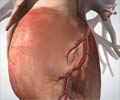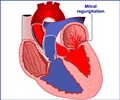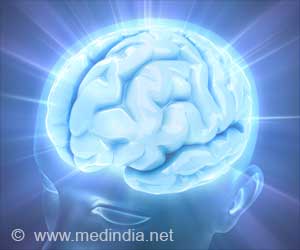Dr. K.M. Cherian who pioneered the first Heart transplant in India talks to Medindia of heart transplants in India, the challenges in cadaver transplant and India’s booming medical Tourism.
Medindia spoke to Padmashri Dr. K.M. Cherian, MBBS, MS, FRACS, DSc (Hon), DSc (HC), who pioneered the Coronary Artery Bypass Graft (CABG) surgery, Infant Heart surgery, first Heart Transplant in Adult and Paediatric as well as Bilateral Lung Transplant and Heart & Lung Transplant in India after the Government's legislation of brain death.
Dr. K.M. Cherian, CEO, and Chairman of Frontier Lifeline Hospital, Dr. K.M. Cherian Heart Foundation and International Center for Cardio Thoracic and Vascular Diseases, has a long list of "first ever" to his credit. His institutions facilitate complete heart care with amenities in cardiac diagnostics, treatment, research and education at a reasonable cost with round-the-clock individual attention by a team of highly experienced, competent and dedicated doctors, nurses and paramedical staff whose motto is 'service above self.' With core values such Compassion, Commitment and Clinical excellence, Dr. K.M. Cherian's team works to ensure a 'hearty' gift of life to patients who come from different parts of the world—namely Iraq, Bahrain, Dubai, Sultanate of Oman, Kenya, Tanzania, Uganda, Nigeria, Somalia, Guyana, Papua New Guinea, Fiji, Pakistan and Sri Lanka, UK & US.Doctor, you have to your credit an ever increasing number of successful heart surgeries and heart transplants. Just how many are they?
Since the first Bypass surgery in 1975, I have performed 35, 000 open heart surgeries, 20 heart transplants (3 children and the youngest happens to be 1 year and 11 months in India), 3 heart and lung transplants and 1 bilateral lung transplant.
The most moving experience in a heart transplant that you have performed…….
The very first heart transplant I performed on September 23rd 1995, in Vijaya Hospital during my stint with Madras Medical Mission, is etched in my mind and heart. The donor heart belonged to Hema Sounderarajan, a Hindu Brahmin and the recipient was Maimoon Beevi, the Muslim wife of a handkerchief vendor. For me it symbolized religious harmony and meant that the human spirit can transcend narrow boundaries of caste, class and creed. It was 3 a.m. in the morning when the operation was over and I called my mother (who was alive then) and shared with her the good news of my first heart transplant. My mother said, "This is the best birthday present you have given me." The first heart transplant was successfully completed on my mother's birthday!
What is your vision for heart transplant in India?
That no single heart should go wasted but be used to give a new lease of life to another. This is a large country with a large population that is slowly shaking off its superstitious beliefs and learning the significance of donating organs. There is a central registry for organ donation now, transport facilities and infrastructure in the country are picking up, and the media is doing a commendable job in promoting public awareness on organ transplant. With more co-operation among medical professionals, I am sure the vision will soon become a reality.
You are saying the lack of good will among medical professionals in organ-sharing is hampering organ transplant in India…..
To some extent, yes. If there is a claim for 50 kidneys (paired organ) harvested from 50 cadavers, what happened to the 25 hearts? At least the heart valves? When there is greater coordination among medical professionals overcoming individual differences, more people can get a new lease of life through cadaver transplants.
Tamil Nadu has shown the way forward in heart transplant, thanks mainly to you, doctor. But why are there only a few centers doing heart transplant when there are so many people waiting for a new heart?
Heart transplant can be achieved only through a carefully coordinated team effort. At Frontier Lifeline we have a Registry and a team of doctors who work in harmony like musicians in a symphony. It would be very difficult for a cardiac surgeon working in a private hospital to garner the kind of huge support needed for heart transplant from the hospital's management.
Take the recent inter-state organ transplant performed in our Frontier Lifeline Hospital from the youngest donor to the youngest recipient. For the 2 year-old boy who came with his parents from Ahmedabad, the only option for survival was a heart transplant. We were doubtful if we could get so young a heart for transplant. When we got a call from Manipal Hospital in Karnataka, about the availability of a 3-year-old's heart from a road mishap, we dispatched a team of skilled doctors in a chartered flight that was cleared for a special landing at Hindustan Aeronautics Limited (HAL). Our team returned with the harvested heart and the heart resumed its functioning, all within a matter of 2 hours and 42 minutes.
In another case, a 16-year-old's heart was rushed to us in a record time of 11 minutes with the help of Chennai Traffic Police from a very long distance in the city and transplanted in a 9-year-old girl. We make a great effort to enlist the help of governmental agencies, airline staff, and a lot many others to make a heart transplant happen.
We are told that your heart valve unit has made giant strides in terms of research and development in tissue engineering and xenograft? Could you elaborate on this and the cost savings when compared to artificial valves?
I started the first Heart Valve Bank in 1987 in Vijaya Hospital when I was with Madras Medical Mission. Frontier Tissueline, an in-house R&D unit at TICEL BioPark, at Taramani, Chennai, undertakes advanced research in biological cardiovascular implants. We have intensive ongoing research in xenograft, bovine pericardial patches, bovine jugular vein (we use the vein of buffalo at Frontier Lifeline) and porcine pulmonary artery conduit (pig to human) for children aged one month to 13 years. We have used these products in 400 children so far. Our unit is the first in Asia to develop biocompatible xenograft valve conduits. Imported tissue engineered products from Germany cost 3000 Euros (Rs. 1, 91, 000 or $3880). We have developed our own indigenous biocompatible synthetic valved conduits that are available at Frontier Lifeline and cost only Rs. 40,000 ($812). So it is a huge saving for the patient as well on Foreign Exchange. The credit for this goes to my colleague, Dr.Soma Guhathakurta, who apart from being a Cardiac Surgeon has a PhD in Biomedical Engineering from IIT.
Doctor what are your suggestions for increasing the number of organ donations in India?
Government orders have set the wheels in motion for cadaver transplant. The rules require only some fine tuning and that can only come about as we gain more experience in this field of cadaver transplant and give a feedback to the government on further nuances needed in the legislation. We are closely working with governmental agencies and the government of Tamil Nadu is ensuring maximum co-operation to facilitate successful heart transplants.
Along with medical professionals, public spirited citizens from all walks of life—film industry, News media, politics, academia, as well as broad- minded religious groups need to educate the public on organ donation. Then the cadaver transplant program can become a huge success.
Through their community services such as rural camps, mobile cardiac diagnostic service, telemedicine and school camps, Dr. K.M. Cherian and his team ensure that quality heart care reaches all sections of society. With the recent operation on Talitha Sherin, a 13-day-old baby for congenital heart defect, Frontier Lifeline crossed yet another milestone completing 500 cardiac surgeries in a span of 5months. All services including surgery, post-operative care, food and accommodation were provided free of cost by the hospital.
Dr. Christiaan Barnard, the world's first heart transplant surgeon who visited Chennai and stayed 10 days with Dr. Cherian, had this to say: "I had the pleasure to visit the hospital where Dr. Cherian and his group of doctors are doing excellent work…They were not only doing complicated acquired heart diseases, revascularization surgery, bypass and transmyocardial revascularization…but they were also doing very complicated congenital heart surgery. Now I have always said…that congenital heart surgery separates the men from the boys because there, the skill of a heart surgeon is really tested".
Source-Medindia
Thilaka Ravi/L












